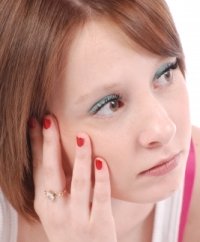|
The difference between the signs of depression and "feeling down"
Signs of depression can sometimes be taken too lightly, and seen as just "feeling down". On the other hand, simply "feeling down" is sometimes mistakenly seen as depression. The question is, how can you distinguish the two conditions? An understanding of depression is the first step, don't you think? The "blues" and feeling down from time to time is a normal part of life. We all go through ups and downs in our daily moods. Sadness is a normal reaction to the setbacks, struggles and heartaches of life. Depression, on the other hand, can have some, or all of these faces:
* Emptiness and despair takes hold and do not go away * These feelings make it difficult to function normally, you cannot go on with your work, study, eating, sleeping and having fun * Nothing interests you any more, not friends, nor hobbies, nor anything else * You are exhausted all the time, getting through the day is difficult * You feel like you are living in a "black hole" or have a feeling of impending doom. * Some people don't feel sad, just lifeless and empty and apathetic * You have intense feelings of worthlessness, hopelessness and helplessness
Some specific physical signs to look out for: * You are much more irritable and short-tempered than usual * You cannot concentrate, and previously easy tasks become very difficult * You can't sleep or sleep too much * You lose your appetite or you cannot stop eating * An increase in unexplained aches and pains in your body * Your thoughts are continiously negative, you feel hopeless, and life does not feel worth living
According to studies, most people with depression do not seek help. I want to urge you VERY seriously: You absolutely MUST see a medical doctor if your thoughts are continiously negative, you feel hopeless, life does not feel worth living and you see suicide as the only alternative.
The following are NOT for major clinical depression, only if your symptoms are mild, you can try one of TEN natural remedies to see you through: 1. St John's Wort: the herb Hypericum perforatum in tablet form. 2. Omega3-fatty acids: a type of good fat needed for normal brain function. These are found in fish or fish oil capsules. 3. SAM-e: S-adonosyl-L-methionine. This is a natural chemical in the body, believed to increase levels of neurotransmitters serotonin and dopamine. It is available in supplement form. 4. Folic Acid, also called folate: a B vitamin that is often deficient in people who are depressed. 5. 5-HTP: 5-hydroxtryptophan. It is used to make the neurotransmitter serotonin. It is best used in combination with antidepressants. 6. Diet: Reduce your intake of sweets, avoid caffeine and alcohol and eat more magnesium-rich foods: legumes, whole grains, green vegetables and nuts. 7. Vitamin B6: A borderline defiency may be present if you use oral contraceptives, HRT and tuberculosis drugs. 8. Exercise is a vital mood enhancer! It decreases the release of stress hormones. A brisk morning walk is ideal, and so is dancing, gardening, or any activity that YOU enjoy. 9. Light therapy: Getting enough sunlight is essential for seasonal mood changes, and is good for overall health. 10. Acupuncture is another way to get your brain back to functioning normally.
And once again, remember: Depression is a very serious disease, if not handled properly. See you doctor if it does not clear up fast!
Return from Signs of Depression to Medical Questions
|





